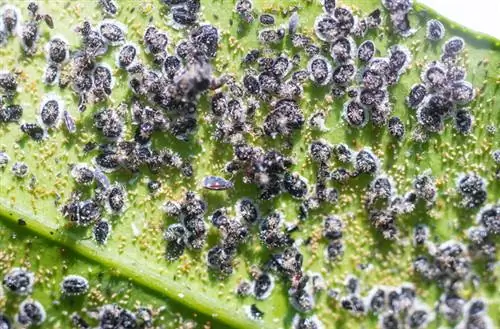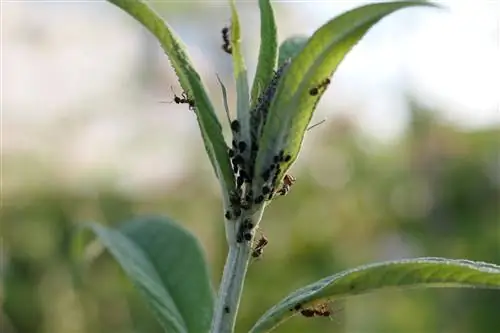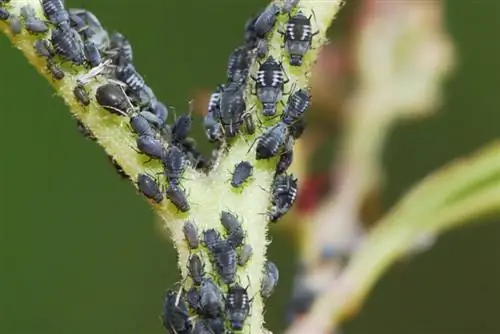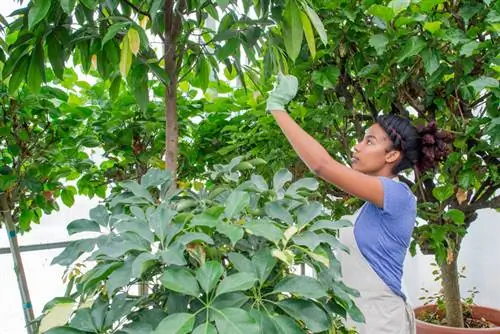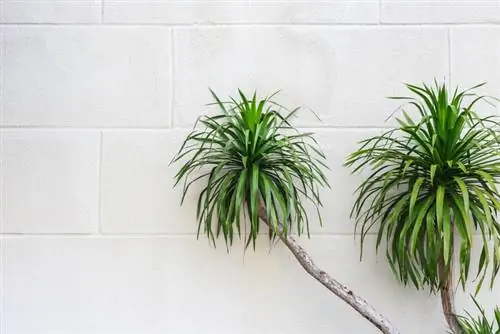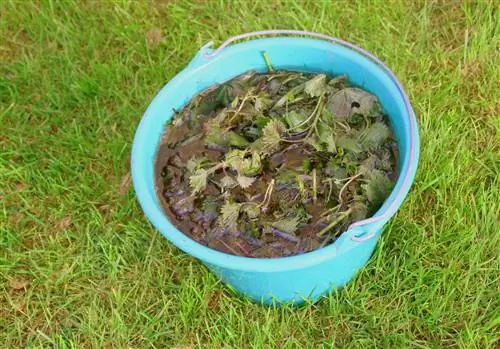- Author admin [email protected].
- Public 2023-12-16 16:46.
- Last modified 2025-01-23 11:20.
The Dipladenia is considered quite easy to care for and undemanding, but it can definitely suffer from aphids. As a rule, the affected plant is not cared for according to its needs or is not satisfied with its location.
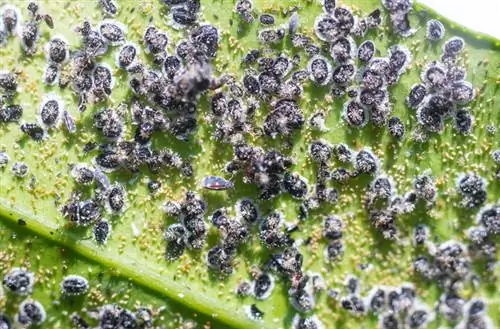
How to prevent and combat Dipladenia lice?
Dipladenia lice can occur due to incorrect location or inappropriate watering behavior. Biological control using water jets, soft soap solutions or nettle manure is effective. As a preventive measure, optimal choice of location, regular checks and sufficient watering are important.
Why does my Dipladenia have lice?
Your Dipladenia, also known as Mandevilla, is probably not in the optimal location or it has not been watered correctly. The two reasons are the main cause of a lice infestation. If the plant is too dark or too cool, it becomes sensitive to pests and diseases
How can I rid my Dipladenia of lice?
Lice can be easily combated with home remedies or biological measures. Simply spraying with a powerful jet of water is often enough. Alternatively, a solution of soft soap or nettle manure can also help, although these do not necessarily smell pleasant.
How can I prevent a lice infestation?
The best way to prevent lice infestation is to give your Dipladenia the opportunity to grow vigorously and he althily. So, like in its homeland, it should be kept warm and bright, without being exposed to the blazing midday sun for hours. To be on the safe side, check your plants regularly for lice infestations so that you can react quickly in an emergency.
Too much or too little water affects the he alth of Dipladenia and makes it more susceptible to lice infestation. During the flowering period, the Mandevilla also needs regular fertilizer, because flowers cost a lot of energy.
The most important things in brief:
- check regularly for lice infestation
- React immediately in the event of an infestation
- preferred time for a lice infestation: from early summer
- Fight lice biologically if possible
- Hosting down with water, soft soap solution or nettle manure
- Keep warm and bright to prevent infestation
- water enough, but not too much
Tip
The Dipladenia is rarely attacked by lice. However, these can easily be combated biologically. With good care and the right choice of location, an infestation can also be prevented.

